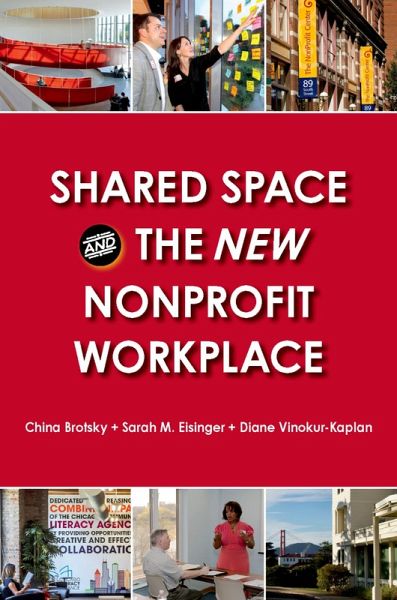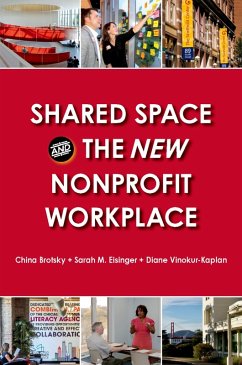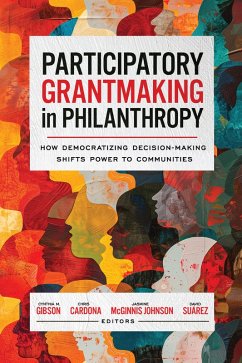
Shared Space and the New Nonprofit Workplace (eBook, ePUB)
Versandkostenfrei!
Sofort per Download lieferbar
32,95 €
inkl. MwSt.
Weitere Ausgaben:

PAYBACK Punkte
16 °P sammeln!
While the economy has boomed since the Great Recession, so too have real estate rents and gentrification in cities across North America; nonprofits priced out of formerly affordable neighborhoods lack adequate workplaces to meet their missions. Shared Space and the New Nonprofit Workplace presents a comprehensive overview of shared space as an innovative model and effective long-term solution for nonprofit organizations' need for stable and affordable office and program space. In particular, it focuses on co-locating multiple nonprofits in shared spaces, often called nonprofit centers, with sh...
While the economy has boomed since the Great Recession, so too have real estate rents and gentrification in cities across North America; nonprofits priced out of formerly affordable neighborhoods lack adequate workplaces to meet their missions. Shared Space and the New Nonprofit Workplace presents a comprehensive overview of shared space as an innovative model and effective long-term solution for nonprofit organizations' need for stable and affordable office and program space. In particular, it focuses on co-locating multiple nonprofits in shared spaces, often called nonprofit centers, with shared services and a collaborative culture. This comprehensive resource provides a practical road map to develop new workspaces; documents benefits for nonprofit staff, organizations, and their communities; presents challenges and solutions from successful nonprofit shared spaces; and considers nonprofit centers' history and future trends. Further, it offers nonprofits an opportunity to engage in forward-thinking practices, such as collaborative service delivery, green building operations, and cross-sector alliances. The book will be useful to nonprofit executives, staff and board members, foundations, philanthropists, real estate and urban planning professionals interested in creating these projects, and researchers and students of the nonprofit sector.
Dieser Download kann aus rechtlichen Gründen nur mit Rechnungsadresse in A, B, BG, CY, CZ, D, DK, EW, E, FIN, F, GR, HR, H, IRL, I, LT, L, LR, M, NL, PL, P, R, S, SLO, SK ausgeliefert werden.













